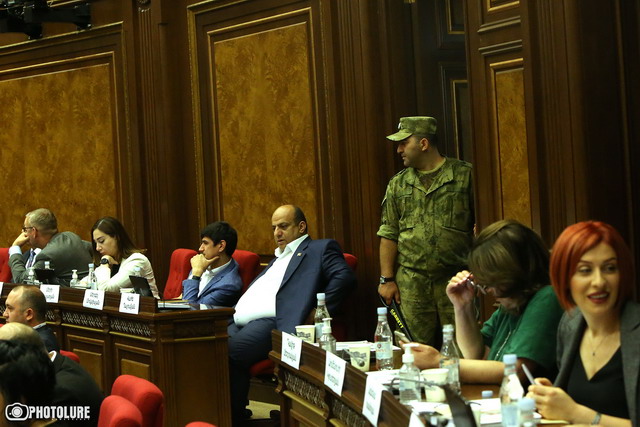It is normal that passions are boiling in the National Assembly. Of course, it is better not to shout at or insult each other, but there is nothing extraordinary in that, neither in our practice, nor in the practice of any other parliament in the world. There is nothing unusual in the attitude of the authorities either. Like the communists, the members of the Armenian Pan-National Movement (from the third year of power) and the members of the Republican Party, they are bloated, complacent, critical, and obstructing access from all sides. It is noteworthy that, in fact, the first decision of the newly elected National Assembly Speaker Alen Simonyan is that the journalists will not be able to easily approach the deputies. From revolutionary idealists, they became boring bureaucrats who cared about their own comfort and well-being, and had close ties to the oligarchy in three years.
In my opinion, after this humiliating defeat in the war, this government had no right to remain under the leadership of the Prime Minister. They should have left the political arena. But my opinion is not crucial here; the opinion of the majority of citizens participating in the elections is important, and that majority does not agree with me. The election showed that the majority is ready to take to the streets to avoid giving an extra 50 AMD to minibuses, but does not want to revolt in the event of a national catastrophe. One can disagree with the majority, but it is decisive.
In my opinion, this should be the starting point of the parliamentary opposition. When they say, “We are not here to discuss matters with you,” it seems rather strange to me. If a political force participates in the parliamentary elections, then it considers the parliamentary forms of political struggle acceptable. Theoretically, there may be a party (suppose, extremely anarchist) that rejects such forms, but there do not seem to be such parties in Armenia, even the former armed detachments participated in the elections.
If you have come to the parliament, there are two things you can do: either you discuss issues with the government (of course, while being strongly critical), or you resign. There is also the problem of being different from the authorities. Before and during the three years following the revolution, the main task of Pashinyan and his team was to “pour oil” on the bitter hearts of their supporters. Now the opposition in the parliament with the labels “Turk,” “traitor,” and “spy” cools the hearts of its (smaller number of) supporters in the same way. It is a dead end.
Read also
Aram Abrahamyan























































